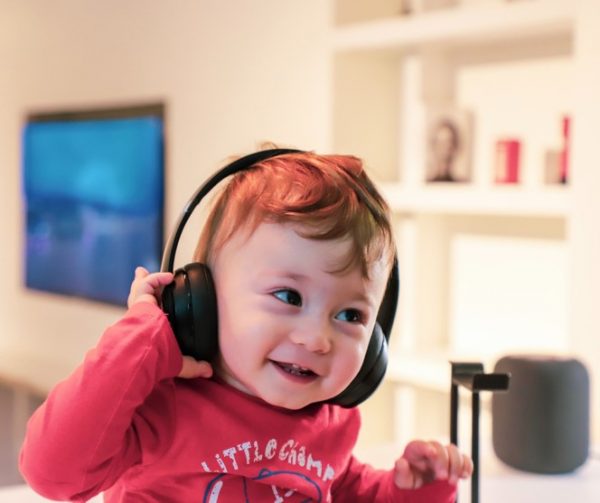
Infants, toddlers and love of music
Music has a huge impact on a child’s mind and body development. Parents should encourage their kids to listen and learn music.
Good and rhythmic music naturally captures a child’s attention irrespective of their age. Similar to teenagers and young adults both infants and toddlers gain a lot from music.
Mothers are usually a child’s first musical mentor and their singing enhances the bond between mother and infant.
Research reveals strong connections between rhythm skills and pre-reading abilities in toddlers. Music enhances fine motor skills, or the ability to use small, acute muscle movements to write, use a computer, and perform other physical activities.
Infants and music:
- Infants recognize the melody of a song long before they understand the words. They often try to mimic sounds and start moving to the music as soon as they are physically able.
- Infants are intensely interested in music. This interest enables babies to perceive nuances and changes in pitch and rhythm of songs in foreign languages that even their parents don’t notice.
- Infants have precocious listening skills. They can recognize the same song in a different pitch and tell the difference in songs containing missing or dissonant notes. Like adults, babies remember and prefer pleasant rather than unpleasant music.
- Infants have an excellent memory for music. After 1-2 weeks of exposure, infants remember a song they have heard and can distinguish it from unfamiliar melodies.
- They prefer new music to the familiar though, because they are curious and are stimulated by something new.
- Infants who are sung to are more content, sleep better and have an overall better sense of well-being.
Toddlers and music:
- Toddlers love to dance and move to music. The key to toddler music is the repetition of songs which encourages the use of words and memorization. Silly songs make them laugh. Try singing a familiar song and inserting a silly word in the place of the correct word, like “Mary had a little spider” instead of lamb.
- Toddlers often get exposure to new songs through their favorite TV shows, such as The Wiggles. They can identify these tunes easily and relate them to these programs. Toddlers enjoy singing on their own and while they play.
- Even deaf children will sing independently without prompting. Deaf toddlers with cochlear implants also love music, despite the tones being suboptimal. They also sing along -through off-key, and get a lot of pleasure from music. While they don’t often recognize melodies, deaf toddlers do recognize rhythms.
What parents need to know?
Maternal singing is mesmerizing to infants and tends to catch their attention better than spoken language. It also eases the burdens of care giving by producing a more content baby and a more relaxed mother.
Structured music may not appeal to some children if it’s not customized to their interests or tastes. Thus, they lose interest. Some children receive more exposure to music and may simply be more musical due to that fact. However, interest in the kind of music can affect desire.
Infants live in a highly musical environment. With technologies, everywhere, now a days Infants are surrounded by music, even in the musical or sing-song way parents speak to infants. Studies show that infants prefer sing-song kind of speech and are more attentive when parents communicate in this way. Parents and grandparents often sing lullabies and play songs. In a good way, these melodies are more emotional, higher-pitched, have a slower tempo and are more intimate. Infants prefer maternal singing to maternal speech and find it more calming.
.
References:
- https://childrensmusic.org/
- http://www.zooglobble.com/
Image credit: Photo by Alireza Attari on Unsplash (Free for commercial use)
Author: Sumana Rao | Posted on: September 27, 2018






















Write a comment